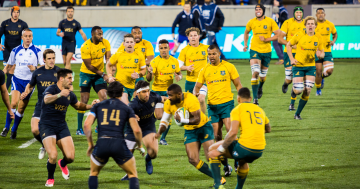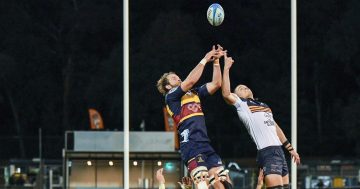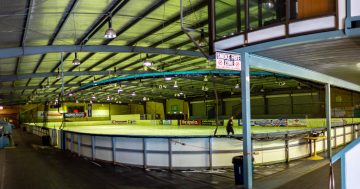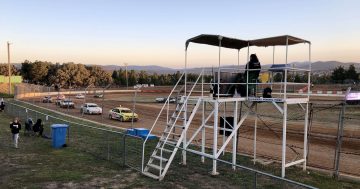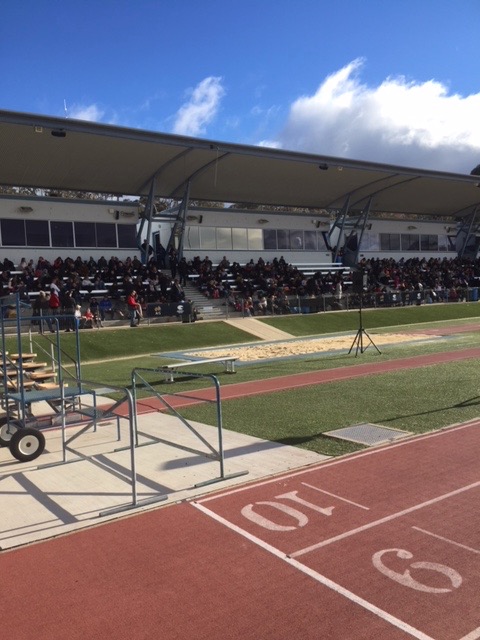
Opening ceremony for the Kanga Cup at the AIS. Photo: Tim Gavel.
This week Canberra is playing host to the biggest junior soccer tournament in the southern hemisphere, featuring 357 teams playing over 1,000 games across 10 venues.
The Kanga Cup brings an estimated 5.2 million dollars into the ACT economy over the week-long tournament. It is not an inexpensive event to run and organisers rely heavily on over 100 volunteers.
Organisers also rely on funding from the ACT Government through its tourism arm and Active Canberra.
From my point of view, the government funding is entirely justified by the obvious benefits associated with bringing people to Canberra for a week. So while the government provides funding, on one hand, it then charges organisers for costs associated with ground hire on the other.
There needs to be a rational discussion involving sporting bodies and the government to resolve what has become a simmering issue for a number of sports in Canberra that are looking to attract and stage events in the ACT.
Hockey ACT had scheduled a Trans Tasman series for last year at Lyneham involving the Australian men’s and women’s hockey teams playing their New Zealand counterparts in games over three days.
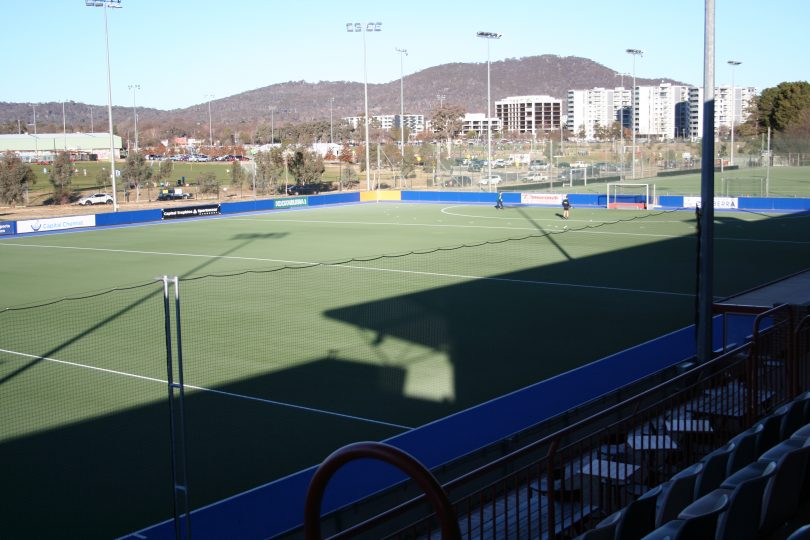
Lyneham Hockey Centre. Photo: Jennifer Andrew.
It became apparent, though, that there were significant hurdles if hockey was to receive government funding.
The government had a requirement that the funding had to be used entirely for marketing and promotion of the event outside Canberra. So, to be clear, the government funding allocated to hockey could not be used for the operating costs needed to run the tournament.
By all reports ACT Government officials did their best to work with Hockey ACT to work through the impasse but in the end, the event was cancelled. This was a blow to hockey regarded by many as one of the better run sports in the ACT.
If nothing else, it highlights a need for a change in policy when it comes to so-called second-tier sports.
By second-tier, I am talking about sports outside cricket, rugby league, rugby union, Socceroos and Matildas, golf and AFL. For events such as the test cricket at Manuka, the government enters a bidding process. It is the same for the Rugby League and Rugby Union World Cups, the Australian Ladies’ Golf Open, the Asian Soccer Cup and soccer internationals.
Second-tier sports seeking government funding through Tourism to attract major events are in competition with the likes of Floriade.
It’s a no-brainer to provide funding for an iconic event like Floriade, which runs over a month and brings in around 40 million dollars to the Canberra economy.
The question I have is why sport should be competing with Floriade for government funding through Events ACT in the first place.
Events such as the Trans Tasman tournament should not be judged simply on how many visitors it attracts to Canberra. What about the aspirational pathway events, such as this, that provide young players inspiration by seeing their idols play?
There are several other factors at play here.
The ACT Government’s National League Team Program funding pool for sports in Canberra is the lowest it has been for some time with more sports than ever involved in national competitions. There is also less discretionary funding for events within the ACT budget. We are a smaller city than most and therefore have less funding available. Other cities are starting to allocate significant funding to attract major sporting events.
A number of states also don’t require sporting organisations that are staging major events to spend the government money allocated for marketing; instead, it can be used for operational costs.
What we need in Canberra is a common-sense approach. Why are the requirements in Canberra more stringent than elsewhere?
Mass participation events such as the Kanga Cup are great for Canberra for many reasons. However, there should also be space in the budget to stage major tournaments such as the Trans Tasman Hockey without the need to spend the allocation on marketing and tourism outside the ACT.














